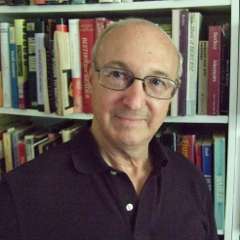An extraordinary event took place on Tuesday evening in Saint-Paul-de Joliette, Quebec, a pleasant little farming community located about an hour’s drive northeast of Montreal. There, as part of Canada’s largest classical music summer music festival (the Festival de Lanaudière, centered in nearby Joliette), pianist Alexander Melnikov gave a weighty, exhausting recital that taxed performer and audience to the hilt, one that will surely be remembered for years to come.
Actually, it would have been an extraordinary event anywhere in the world. Melnikov opened his program with Schumann’s deeply poetic Symphonic Etudes (replacing the originally announced Schubert Wanderer Fantasy), into which he incorporated two of the “supplemental” études not published during Schumann’s lifetime. The “symphonic” aspect of this music refers to the organic growth and extensive working out of the theme as well as to the orchestral textures, colors, sonorities and effects, either suggested or realized. This was followed by a Scriabin group that included the densely-textured, heavily perfumed and monstrously difficult ten-minute Fantasy Op. 28.
As if this weren’t already enough to exhaust anyone’s attention span on a sultry summer evening in a church without air-conditioning, after intermission Melnikov offered the first twelve of Shostakovich’s 24 Preludes and Fugues – 65 minutes of non-stop music-making, during which he frequently had to mop his brow. In multi-task mode, he at times began a fugue with one hand and grabbed a towel with the other. This is music that manages to be both intellectual and entertaining in equal measure, though rarely at the same time. In their vast range of textures, figurations, rhythmic devices, characterizations, compositional procedures and moods, these preludes and fugues rank as one of the monuments of 20th-century piano literature. The breadth of images and characterizations range from comic to tragic, from humorous to serious, from graceful to grotesque.
Melnikov may have been sweating buckets, yet he also appeared supremely calm, reserved, and totally in control. Much like Vladimir Horowitz did, Melnikov sits almost motionless on the bench, letting his arms and hands do the work, not his torso. But the Horowitz connection goes deeper – much deeper. I know of no other pianist today who can match the legendary master in his enormous range of dynamics, from the most exquisite pianississimos that nevertheless carry to the back of the hall to thunderous roars of sound that envelop listeners without assaulting them. While many other pianists have perhaps two or three kinds of mezzo-forte, Melnikov must have at least fifty. The crystalline clarity is amazing, even in the densest textures and at the most insane speeds. Rhythmic control is always rock-solid, with none of the rushing and racing ahead that so many others today employ under the guise of “emotional involvement.” Melnikov’s textural transparency must be heard to be believed. The opening chord of Schumann’s Symphonic Etudes was simply astonishing – not so much a chord but a vertical alignment of six individual sounds, each projected with exactly the same weight and mass.
But make no mistake – Melnikov is no Horowitz clone. He sounds only like himself. His massive tone is closer to what Gilels or even more so Richter (his teacher) produced, his phrasing is different, he doesn’t tease inner voices, and, if one slight criticism might be proffered, he lacks Horowitz’s range of colors. Emblematic of Melnikov’s individuality is the fact that he is one of the few pianists who don’t feel the need to grasp the instrument when bowing.
Despite the heat, despite the hard and narrow church pews, despite the size and weightiness of the program, and despite the lack of a single lollipop, the audience thoroughly appreciated what Melnikov had brought to their small town, sitting in rapt attention right to the end and indulging in none of the extraneous noises that afflict so many concerts in more prestigious venues. This was pianism at its most exalted, and one felt privileged to be part of the experience.


